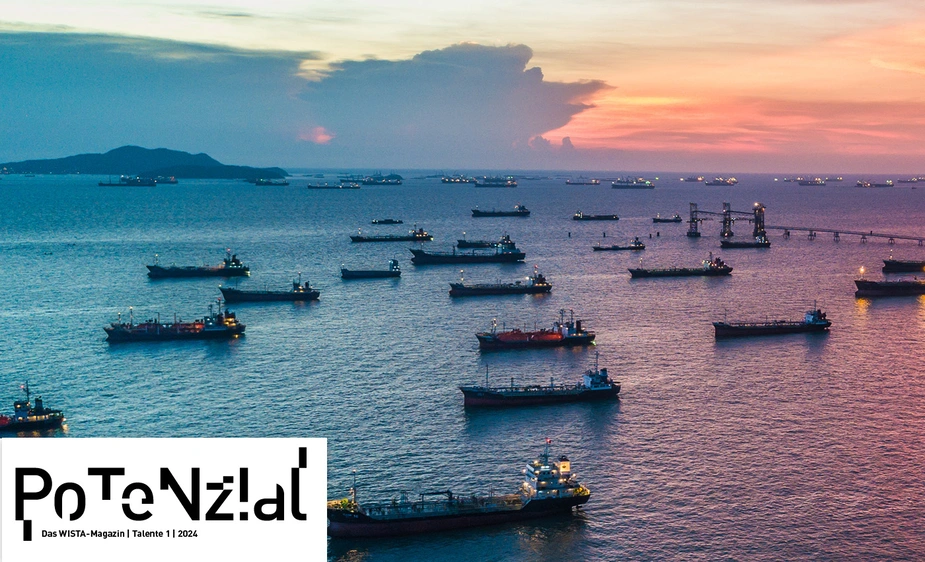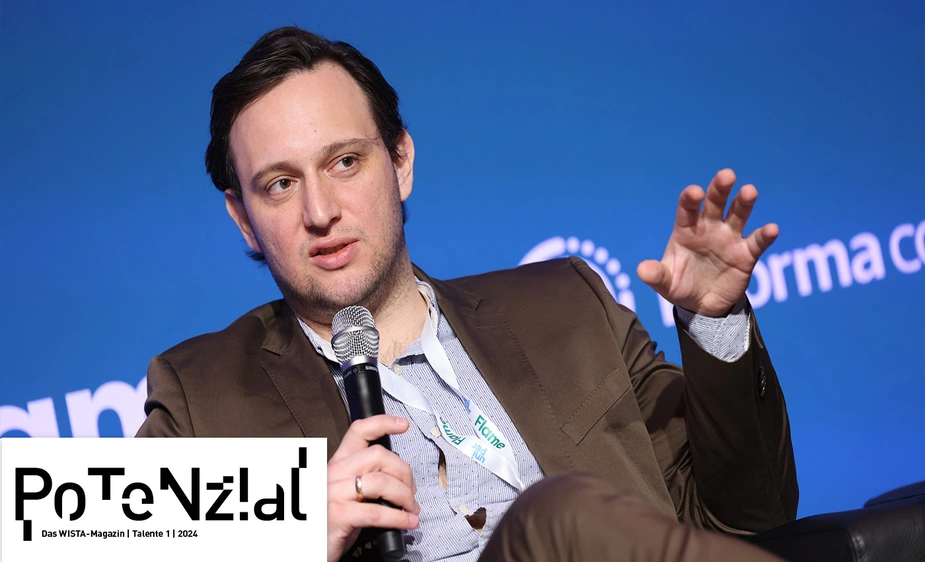AI for trade and transport of commodities
The software company Calypso Commodities develops optimisation solutions for logistics
The world is changing. Bit by bit, fossil fuels are being replaced. But this will not happen overnight. Until renewable hydrogen creates a green commodities industry and innovative storage concepts make sun and wind baseload-compatible, oil and gas will continue to fill the gaps. The young software company Calypso Commodities is committed to at least making their transport more sustainable.
“We develop AI-based solutions for optimising commodities trading and commodities logistics,” says Michael Schach, one of the founders of Calypso. “Raw materials nowadays are traded through contracts in various trading locations,” he goes on. “These are contracts over delivering a fixed quantity to a specific location on a fixed date.” These contracts are drawn up long before the actual delivery and then change hands many times. The expected value of the goods changes daily due to price indexing in dynamic trading hubs. “Our AI solution combines methods for portfolio optimisation from the financial industry with optimisation calculation methods from the fleet and logistics industries, which creates a competitive edge for our clients in trade,” explains the industrial engineer.
When the delivery is due, transport must be arranged. For this, large energy corporations typically rely on their own tanker fleets. These are to be deployed as efficiently as possible. To do so, several things need to be considered in advance. Which ship fits in which port? What’s the security situation off the Suez Canal? Are there queues in front of the Panama Canal? What is the water level there at the moment? “All these very physical, logistical factors must be united in one solution—however, additionally, global optimisation changes daily due to fluctuating prices in trading hubs,” explains Schach. “Despite the extremely large number of possible combinations in the solutions space, computing time must be kept within limits.” For this reason, the company is banking on algorithms from artificial intelligence. However, fleet planning is just the beginning. It creates a framework for when everything runs smoothly out there, on the seven seas. But this is not normally the case. “If there’s a storm raging somewhere, for example, a ship must go slower,” he explains. “Maybe another ship must be rerouted to fulfil the contract.” The solutions offered by the Berlin-based company have these types of unforeseen events on the radar, as it were.
Naturally, there were always efforts to optimise commodities trading and logistics. Immediately after graduating, Schach experienced this first-hand and recognised the problem: “The only solutions to optimise commodities trading and logistics were those available within the company,” he says. “They ranged from Excel sheets to developing specialised software.” There was no sign of a comprehensive, market-driven solution to rent or buy. The decision to change this birthed the idea of Calypso Commodities. The company was launched in Würzburg in April 2021. Just a few months later, the company moved to the Charlottenburg Innovation Centre, or CHIC. “Berlin simply has the best funding opportunities for young companies,” he says. “CHIC is very attractive to us. It’s right in the centre and has the most affordable office rents by far.”
While starting up, the team is concentrating on liquefied natural gas (LNG) because it requires constant cooling to -162 °C, making transportation so costly that every day saved counts. Savings extend to more than euros and dollars. “Our clients now also have an eye on CO₂ costs,” says Schach. “Increasingly, optimisation of commodity logistics is not only about maximum profit but also extends to sustainability—from an economic point of view.” Route optimisation will now choose shorter routes or ships will travel slower to save CO₂ emissions.
The next logical step would be to transport hydrogen produced from renewable sources. “It really is an ideal product for us,” explains the founder. “Supraregional transport of hydrogen—in converted form as ammonia or as liquefied hydrogen—is going to be very costly due to the cooling of the tanks.” Here, too, Calypso Commodities has already worked on a solution. “However, there is no real market for renewable hydrogen yet,” he says. “As soon as this is established, we will be ready. Until then, we want to help reduce the footprint of conventional commodity trading.”
Kai Dürfeld for Potenzial

